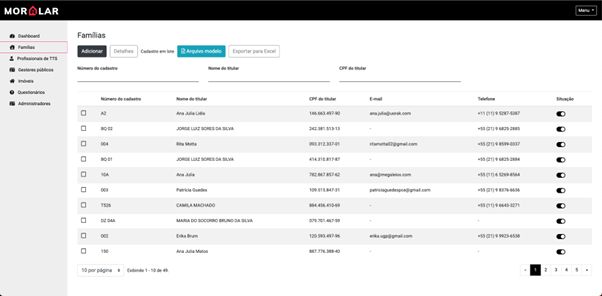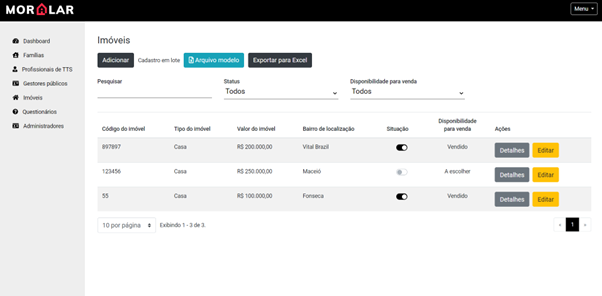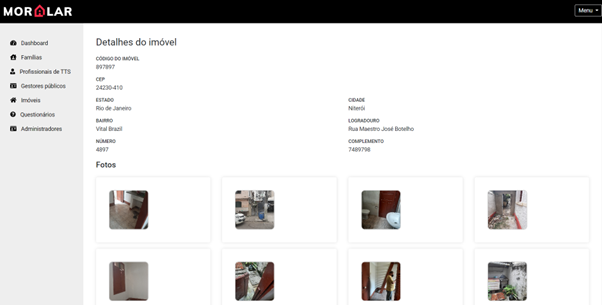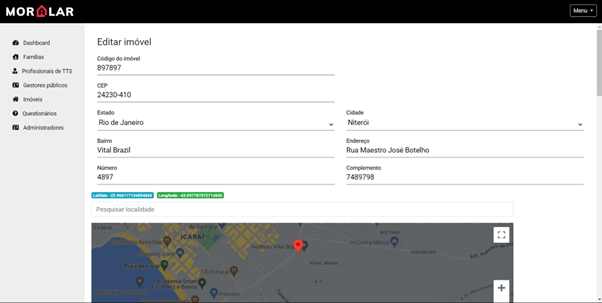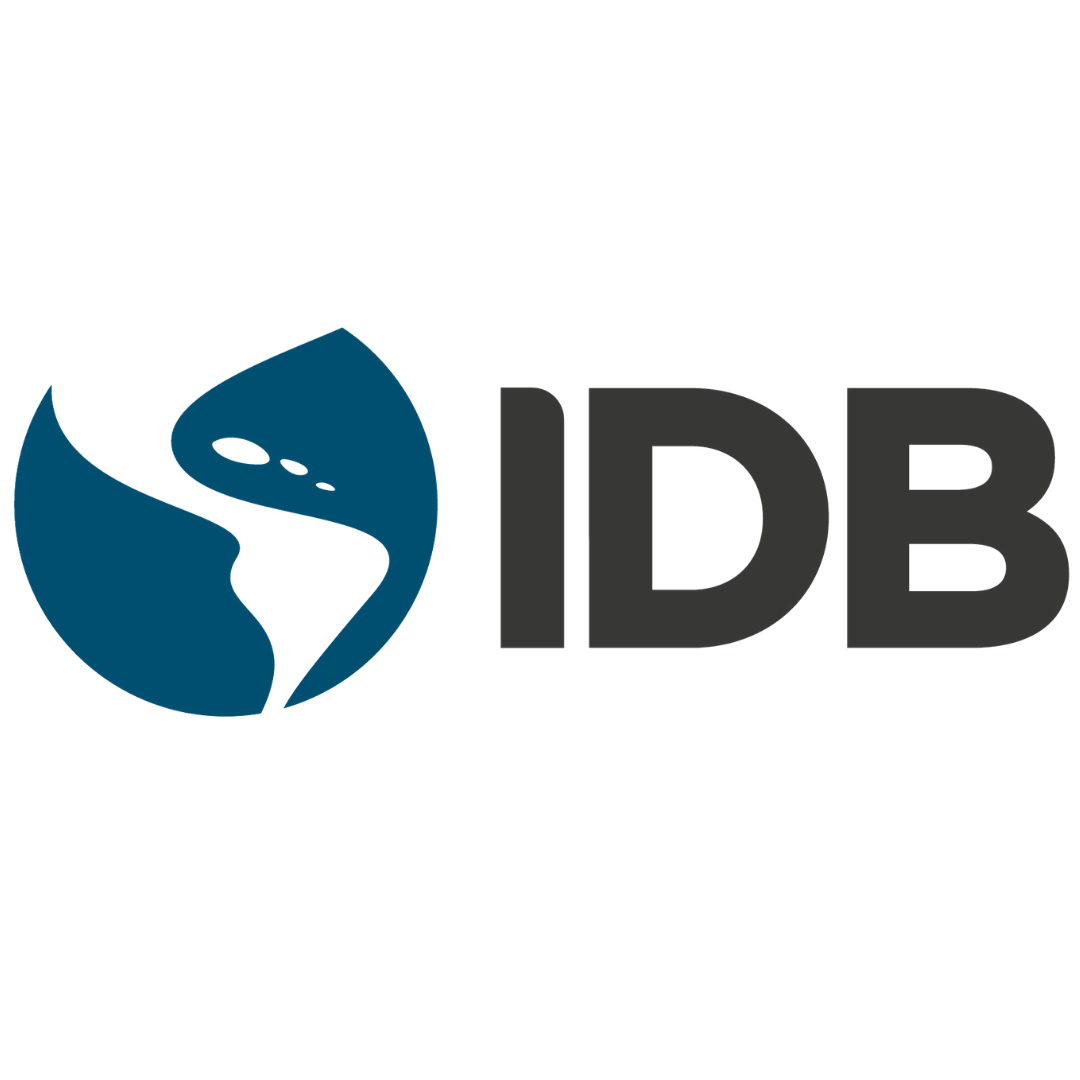Herramientas/Tool Index
Moralar
Tool description:
“Moralar” is an integrated data management software tool, created to assist in the process of resettling families through Assisted Purchase, a modality in which the family removed from their original home is resettled in a home purchased by the public authority in the private real estate market. The solution mainly aims to facilitate the ‘match’ between the requesting families and the identified homes available for sale. It also has other functionalities to accompany the resettlement process step by step.
What problems does it solve?
The "Moralar" application was designed to support the programs in the IDB portfolio that include resettlement goals, with the aim of helping the public authorities organize, manage and optimize the flows of the resettlement process with Assisted Purchase. This allows for more efficient monitoring during execution, as well as greater commitment of the resettled population to the actions developed.
How does it work?
There are 05 main functionalities: i) home page, which requests different access information for the three types of users (public manager, social team, head of the family) and presents the option of password recovery and compliance with the terms of use and privacy policy; ii) timeline, where agendas and the status of resettlement processes, meetings and courses are found; iii) house match, presentation of a catalogue of pre-selected house options for the resident who is already eligible; iv) allows monitoring of the family after its move and its reintegration into the local basic services network; and v) interactive communication, allows direct interaction with the resettled family.
Related operation:
The Niterói Urban Development and Social Inclusion Program (BR-L1386) was a collaboration between the Municipality of Niterói, located in the State of Rio de Janeiro, and the Housing and Urban Development division of the IDB, between 2014 and 2024. The Program aimed to improve the quality of life of the Municipality's inhabitants, through the execution of urban and social projects. In particular, it focused on the urbanization of four communities particularly vulnerable to geological risks and exposed to socio-environmental disasters in the city of Niterói. Some of the physical interventions, for safety reasons, involved the removal of precarious homes and the resettlement of families living in risk areas. Thus, PRODUIS had to manage involuntary displacement processes, providing compensatory measures such as financial compensation and Assisted Purchase. More information was described in this blog: ++INCLUDE IDEATION BLOG LINK IN PT++
https://www.iadb.org/en/whats-our-impact/BR-L1386
Interface screenshots:
